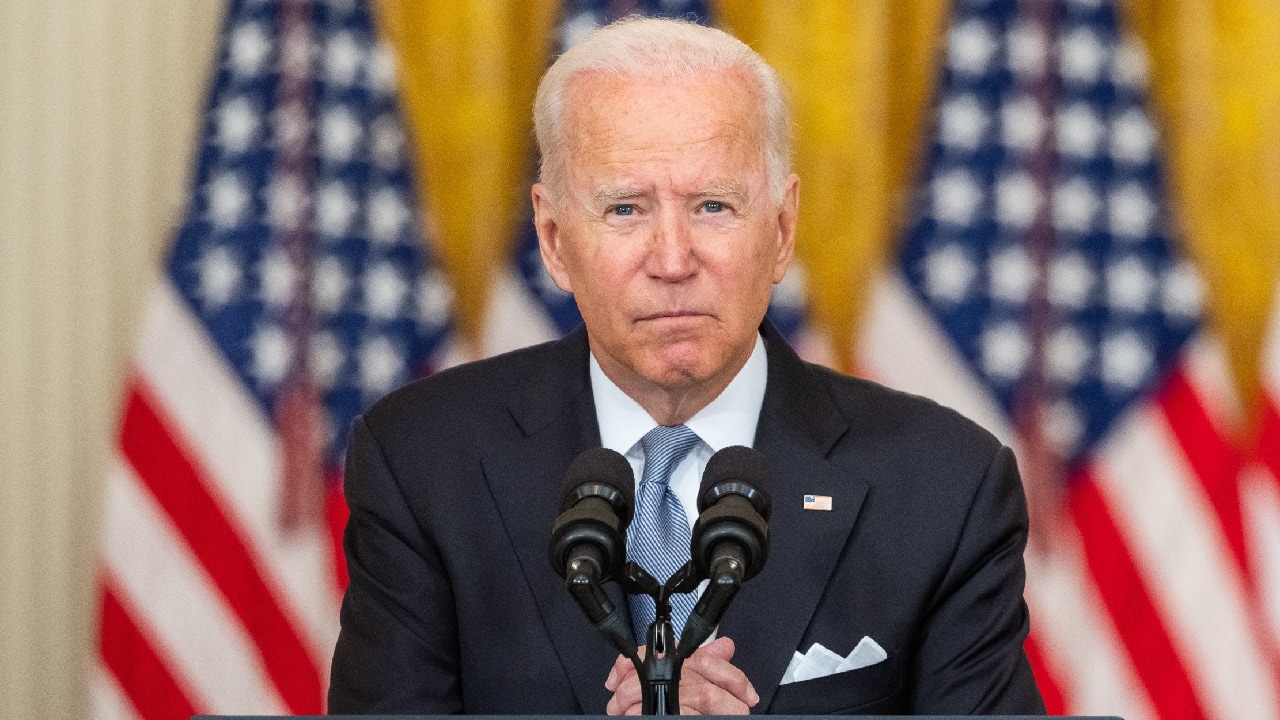Today’s surprisingly strong jobs report underlines the current strength of the US economy and points to strong underlying inflationary pressures. As such, it gives the Federal Reserve the green light to start a series of interest rate hikes beginning as early as next month. This does not bode well for President Biden’s prospects at this November’s mid-term elections since rising interest rates could very well prove to be the trigger that bursts the equity and housing market bubbles.
While many economists, including those in the White House, had expected a very weak jobs report on account of the recent surge in Omicron cases, today’s jobs report was anything but weak. It showed that the economy added close to 500,000 jobs last month and that at 4 percent, the unemployment rate remained at close to its pre-pandemic lows. The fly in the ointment, however, was that wages are now increasing at a 5 percent annual clip. Such a fast pace of wage increases will complicate the Fed’s task of bringing down inflation from its current forty-year high.
At its last Open Market Committee meeting in January, the Fed paved the way for interest rate increases by announcing that it would end its bond-buying program in March. With consumer price inflation currently running at more than 7 percent and with the labor market showing strength, the Fed will have little option but to start a round of interest rate hikes in order to fulfill its dual mandate of price stability and maximum employment.
A major challenge for the Fed is that it will be forced by its dual mandate to remove the monetary policy punchbowl at the very time that the country is experiencing both an equity and a housing market bubble. Indeed, not only are equity valuations at nosebleed levels experienced only once before in the past one hundred years. House prices, even in inflation-adjusted terms, are now significantly higher than they were in 2006 on the eve of the last US housing market bust.
In the run-up to the midterm elections, the last thing that President Biden needs is for the Fed to be engaged in a round of interest rate hikes. This is particularly the case considering that today’s outsized equity and housing market bubbles have been premised on the mistaken assumption that today’s ultra-low interest rates would last forever. When the Fed starts raising interest rates in earnest, there is every prospect that the US equity and housing market bubbles will deflate. That in turn could very well lead to both financial system stress and an abrupt economic slowdown.
In the 1990s, James Carville, Bill Clinton’s political advisor, never tired of saying that when it came to elections, it was the economy, stupid. President Biden might soon come to regret that he had not heeded that advice in March 2021 when he rushed through Congress a $1.9 trillion stimulus package that Larry Summers warned would lead to economic overheating. To be sure, by overstimulating the economy Mr. Biden did manage to get a very strong economic boom last year. However, by allowing the inflation genie out of the bubble, he has also all too likely set us up for an economic bust on the eve of the November 2022 mid-term elections.
Desmond Lachman joined AEI after serving as a managing director and chief emerging market economic strategist at Salomon Smith Barney. He previously served as deputy director in the International Monetary Fund’s (IMF) Policy Development and Review Department and was active in staff formulation of IMF policies. Mr. Lachman has written extensively on the global economic crisis, the U.S. housing market bust, the U.S. dollar, and the strains in the euro area. At AEI, Mr. Lachman is focused on the global macroeconomy, global currency issues, and the multilateral lending agencies.

